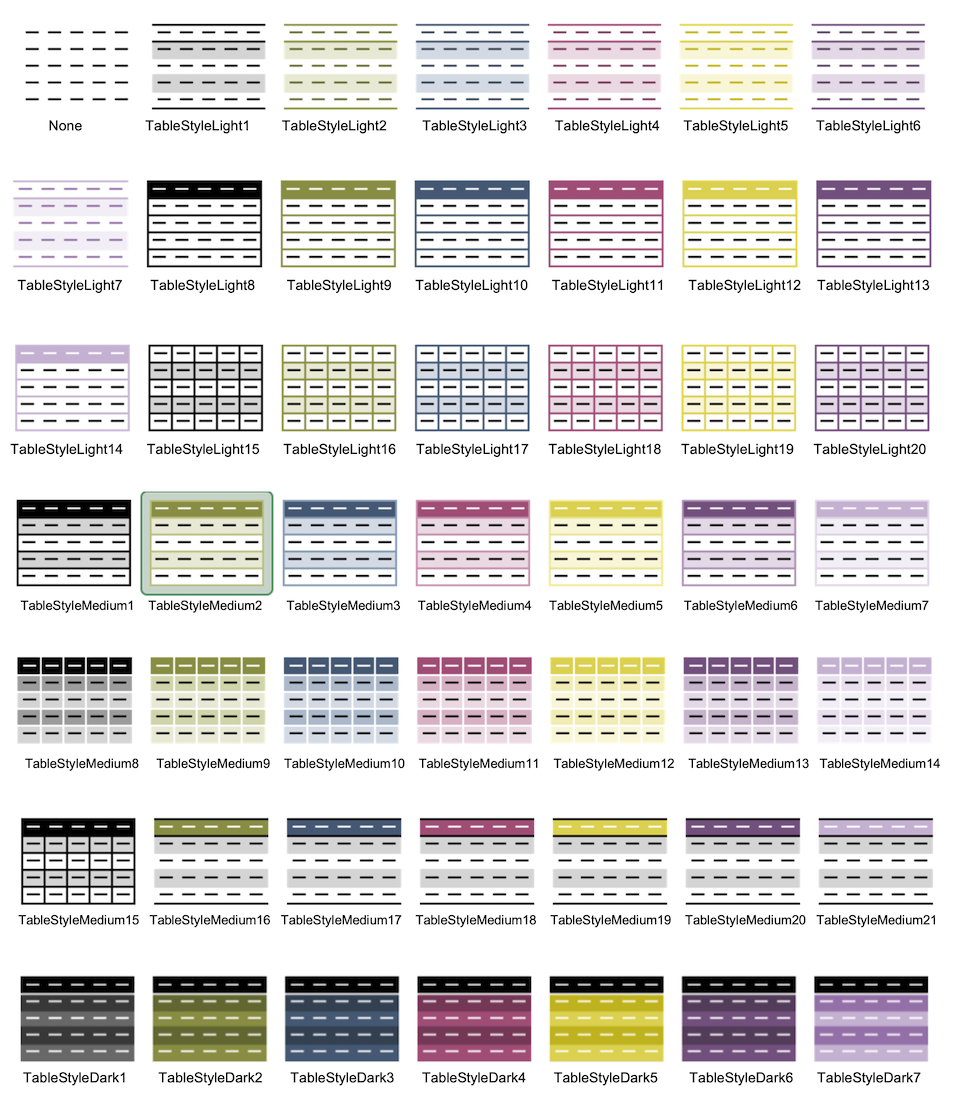The as_excel() function relies on the openxlsx2 package for creating an Excel Workbook object in R. These objects can be saved using save_excel() or export_xlsx().
as_excel(
...,
sheet_names = NULL,
autofilter = TRUE,
autowidth = TRUE,
widths = NULL,
rows_zebra = TRUE,
cols_zebra = FALSE,
freeze_top_row = TRUE,
digits = 2,
align = "center",
table_style = "TableStyleMedium2",
creator = Sys.info()["user"],
department = read_secret("department.name"),
project_number = project_get_current_id(ask = FALSE)
)
save_excel(xl, filename = NULL, overwrite = FALSE)Arguments
- ...
data sets, use named items for multiple tabs (see Examples)
- sheet_names
sheet names
- autofilter
create autofilter on columns in first row. This can also be a vector with the same length as
....- autowidth
automatically adjust columns widths. This can also be a vector with the same length as
....- widths
width of columns, must be length 1 or
ncol()of the data set. If set, overridesautowidth.- rows_zebra
create banded rows. This can also be a vector with the same length as
....- cols_zebra
create banded columns. This can also be a vector with the same length as
....- freeze_top_row
freeze the first row of the sheet. This can also be a vector with the same length as
....- digits
number of digits for numeric values (integer values will always be rounded to whole numbers), defaults to
2- align
horizontal alignment of text
- table_style
style(s) for each table, see below. This can also be a vector with the same length as
....- creator
name of the creator of the workbook
- department
name of the department of the workbook
- project_number
project number, to add project ID as the subject of the workbook
- xl
Excel object, as created with
as_excel()(or manually with theopenxlsx2package)- filename
file location to save Excel document to, defaults to a random filename in the current folder
- overwrite
overwrite existing file
Supported Table Styles
For the argument table_style, use one or more of these table styles as character input. The default is TableStyleMedium2.

Examples
# creates a Workbook object
xl <- as_excel("this is a sheet" = mtcars,
"another sheet" = anscombe)
#> Warning: In read_secret(): environmental variable 'secrets_file' not set
#> Warning: Row names for object 1 (32 × 11, sheet 'this is a sheet') added as first column 'rownames'
xl
#> A Workbook object.
#>
#> Worksheets:
#> Sheets: this is a sheet, another sheet
#> Write order: 1, 2
# then save it with save_excel() or export_xlsx()